SILVERTON SIEGE (2022)
In apartheid South Africa, three black freedom fighters find themselves besieged with hostages in a bank.
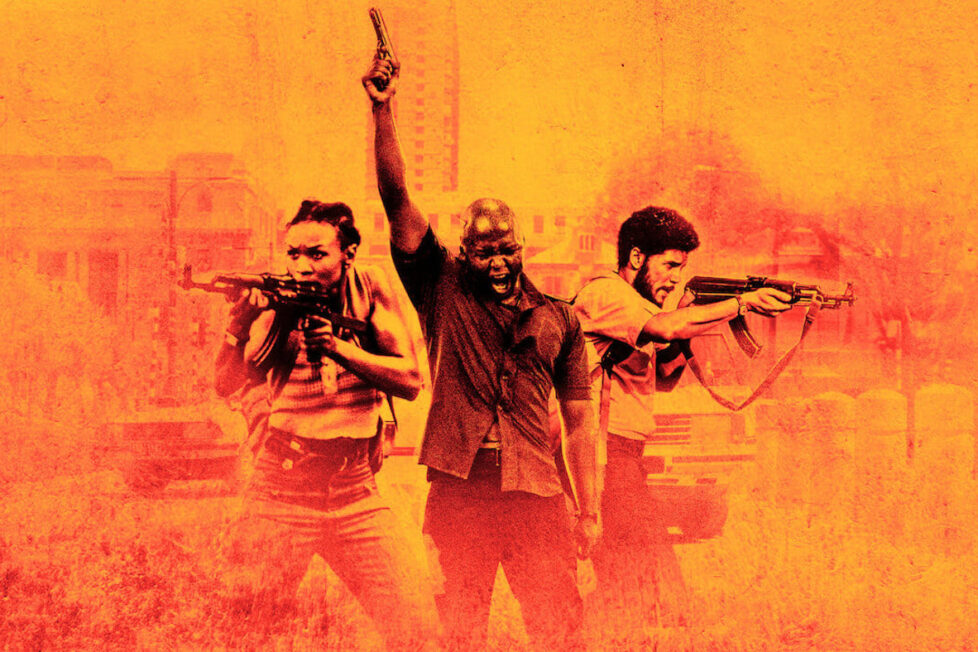
In apartheid South Africa, three black freedom fighters find themselves besieged with hostages in a bank.


Undoubtedly thanks to the insatiable appetite of the streaming services as well as heightened interest in racial politics, South African films about the apartheid era and its legacy have gained greater visibility in recent years.
Not all are direct portrayals of apartheid and its effects; one of the best is Moffie (2019), charting the travails of a young gay white man, though the analogy’s clear enough. Originality isn’t always their strength: for example, Amandla (2022)—not to be confused with the 2002 documentary of the same name—is the kind of childhood-friends-on-opposite-sides-of-the-law film that’s been made since at least the 1930s. (Michael Curtiz’s 1938 Angels With Dirty Faces is an archetype). Nor is subtlety, as Shepherds and Butchers (2016) is clunky and didactic.
But at the least, they tend to be well-made and strongly performed, gaining interest from locations and contexts that are relatively unfamiliar to audiences outside their home country, and even if they do not always deal directly with the apartheid period itself they always illustrate its pervasive influence.
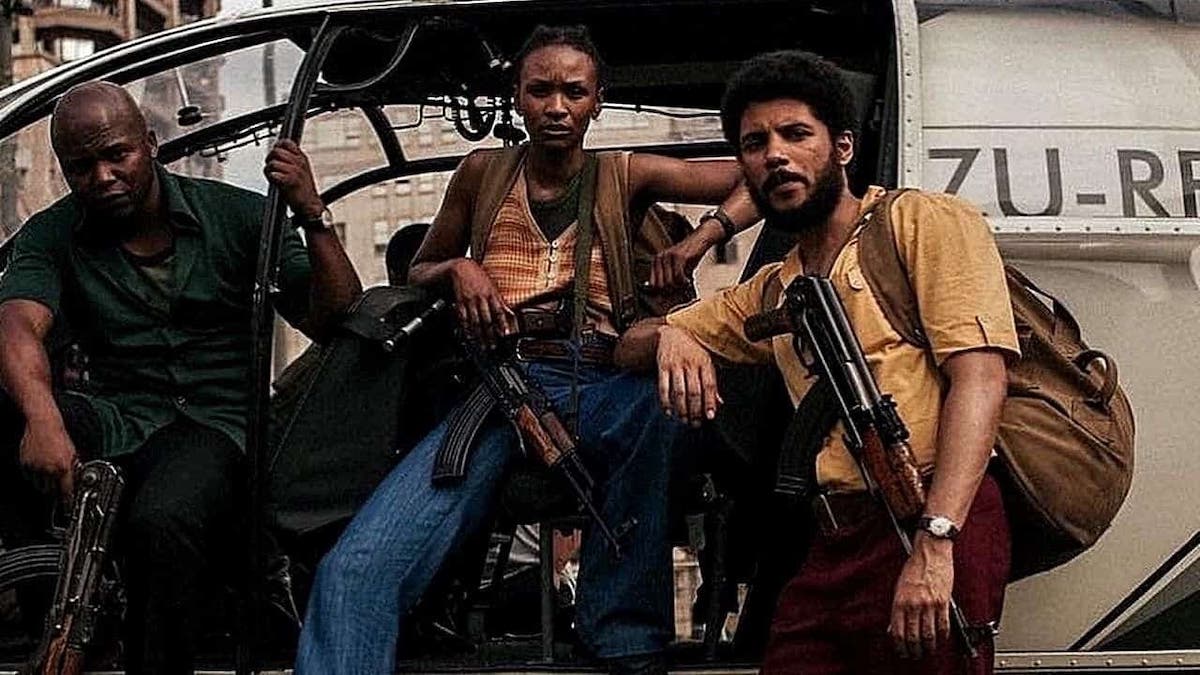
One of the most striking, both brutal and sentimental if a little over-directed, is Kalushi: The Story of Solomon Mahlangu (2016), directed by Mandla Dube and starring Thabo Rametsi in the title role. Now Dube and Rametsi (who also played one of the two central parts in Amandla) are reunited for Silverton Siege.
Based on a real incident that took place in Pretoria in 1980 (Silverton is an area of that city), it tracks three fighters in the Umkhonto we Sizwe group—the military arm of the African National Congress—who, after a failed attempt to sabotage a fuel depot, find themselves involved in a gun battle on the streets. They take refuge in a bank, where they are soon surrounded by police while holding the bank’s customers and staff as unplanned hostages.
The three here are Calvin (Rametsi), Mbali (Noxolo Dlamini), and Aldo (Stefan Erasmus), although in reality the trio were all men. Their principal contact on the outside is Captain Johan Langerman (Arnold Vosloo), while their hostages include the mouthy, entitled Rachel (Michelle Mosalakae), who harbours a very large secret; the bank’s supervisor Christine (Elani Dekker), a particular concern for the authorities as the daughter of a government minister; and Cornelius (Shane Wellington), a black American boxing promoter who is, by virtue of his nationality, treated in South Africa as an honorary white.
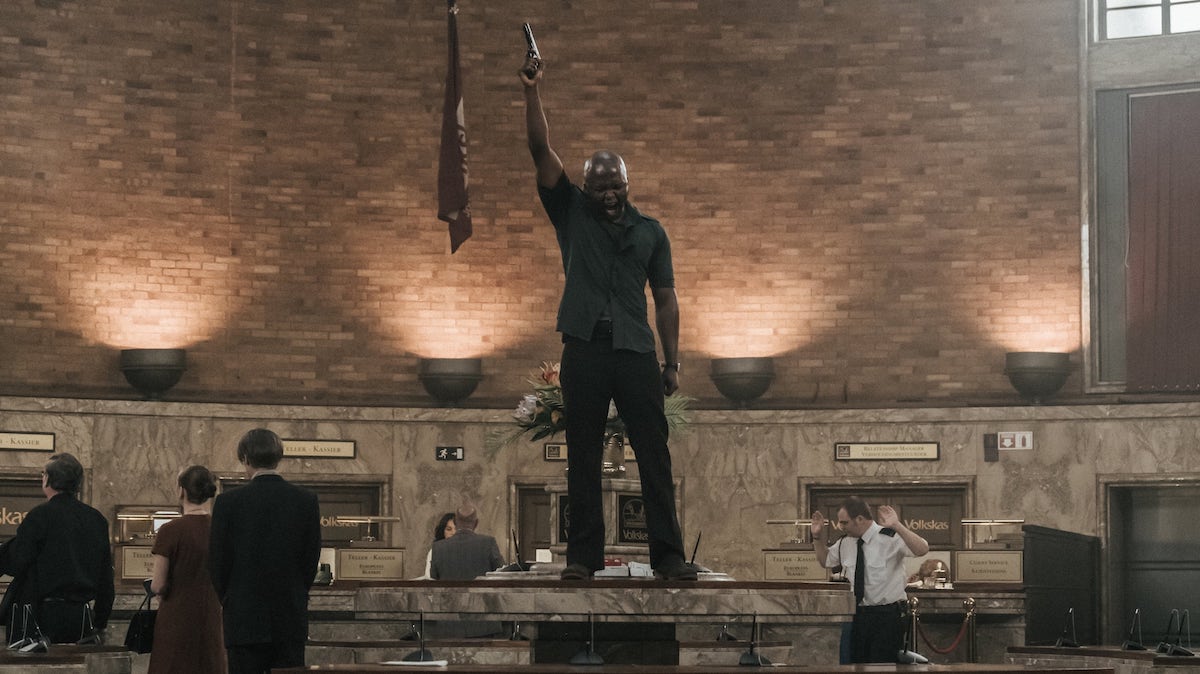
Not many big surprises emerge in the broad way that the film unfolds: we have the tensions among the hostage-takers, relationships both friendly and antagonistic developing among them and the hostages, the arguments between law enforcement personnel who favour negotiation and those who want to go in with all guns blazing, and so on. Silverton Siege has been compared to Sidney Lumet’s Dog Day Afternoon (1975), and the movies do have a certain amount in common (not least the sweaty heat), but in truth it’s the genre rather than any particular model that Silverton Siege adheres to.
There isn’t much unexpected, then, apart from Rachel’s jaw-dropping revelation toward the end (which maybe won’t be so amazing to black or South African audiences) and a few elements specific to the apartheid setting. But even if Silverton Siege stays within the lines of the genre, it’s well done and well-paced: the opening scenes of the abortive sabotage are suspenseful, the following chase is full of energy, and there is genuine tension throughout.
It benefits from being largely confined to one space, the bank’s main hall, making occasional scenes outside the building’s front door or in its other rooms all the more effective because we, like the three freedom fighters, have the sense of straying beyond security. (Dube’s experience as a director for live theatre may help here.)
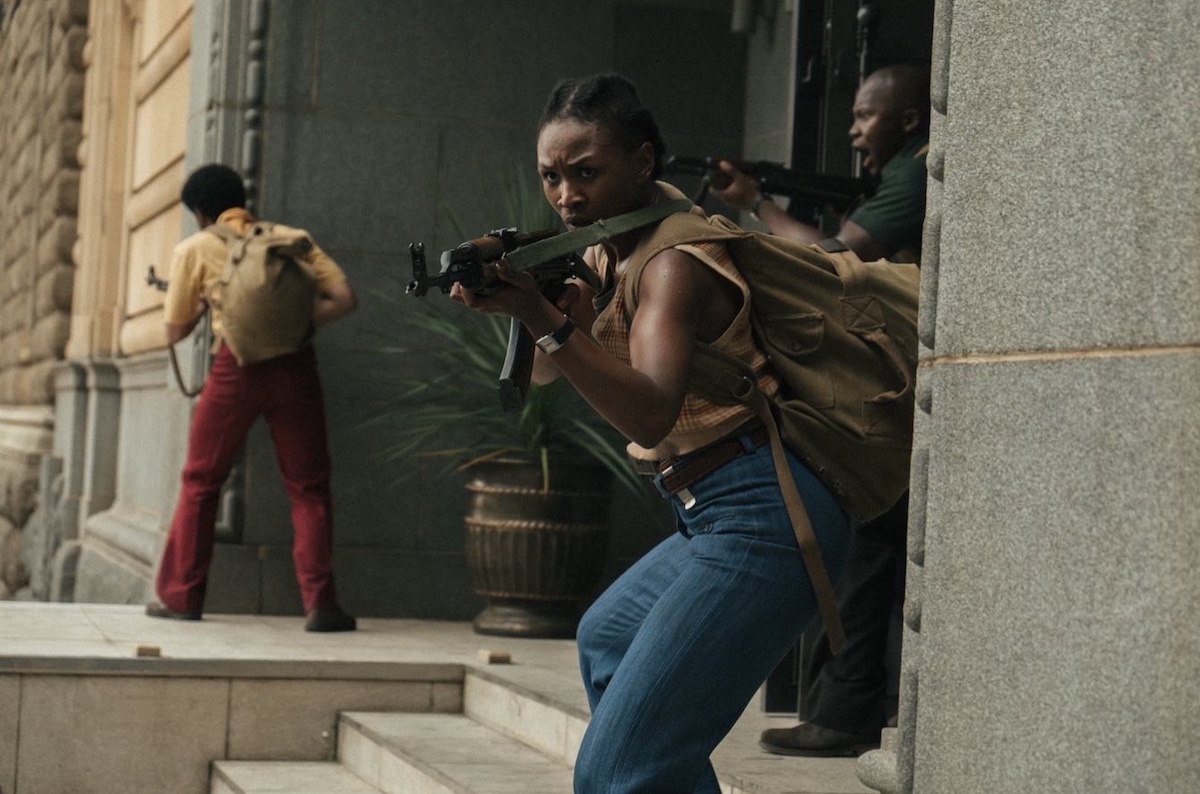
The cast, too, is consistently credible, with Rametsi once again confirming his substantial screen presence, while Diamini makes hers felt in a less obviously assertive way. Both Mosalakae and Dekker as very different woman hostages are memorable, and Wellington as the American provides a little pointed humour.
Dube has said “what I looked for was the humanity of these guys [the freedom fighters]. They are lovers. They are young. They have relationships. In the bank, they find other complex human beings who also have their own challenges. If you start connecting the dots of their humanity, you’re going to have an emotional rollercoaster of people trusting, mistrusting and trying to survive.”
Some will be disappointed that although the effort to free Nelson Mandela eventually becomes an important plot element, there’s no deep attention paid to politics in Silverton Siege. It’s a hostage movie playing out against an apartheid background, rather than a movie about apartheid.
Others, however, may even see this as a merit, and there’s certainly no reason South African films have to be held to a higher-minded standard than their Hollywood counterparts.
It’s likely, however, that the next and last in Dube’s Pretoria-set “legends of freedom” trilogy—following Kalushi: The Story of Solomon Mahlangu and Silverton Siege—will address the issues more directly: he plans in that film to cover Mandela’s trial. And however it turns out, the signs from its predecessors are that it’ll at least be eminently watchable.
SOUTH AFRICA | 2022 | 100 MINUTES | 2.35:1 | COLOUR | ENGLISH • ZULU • AFRIKAANS

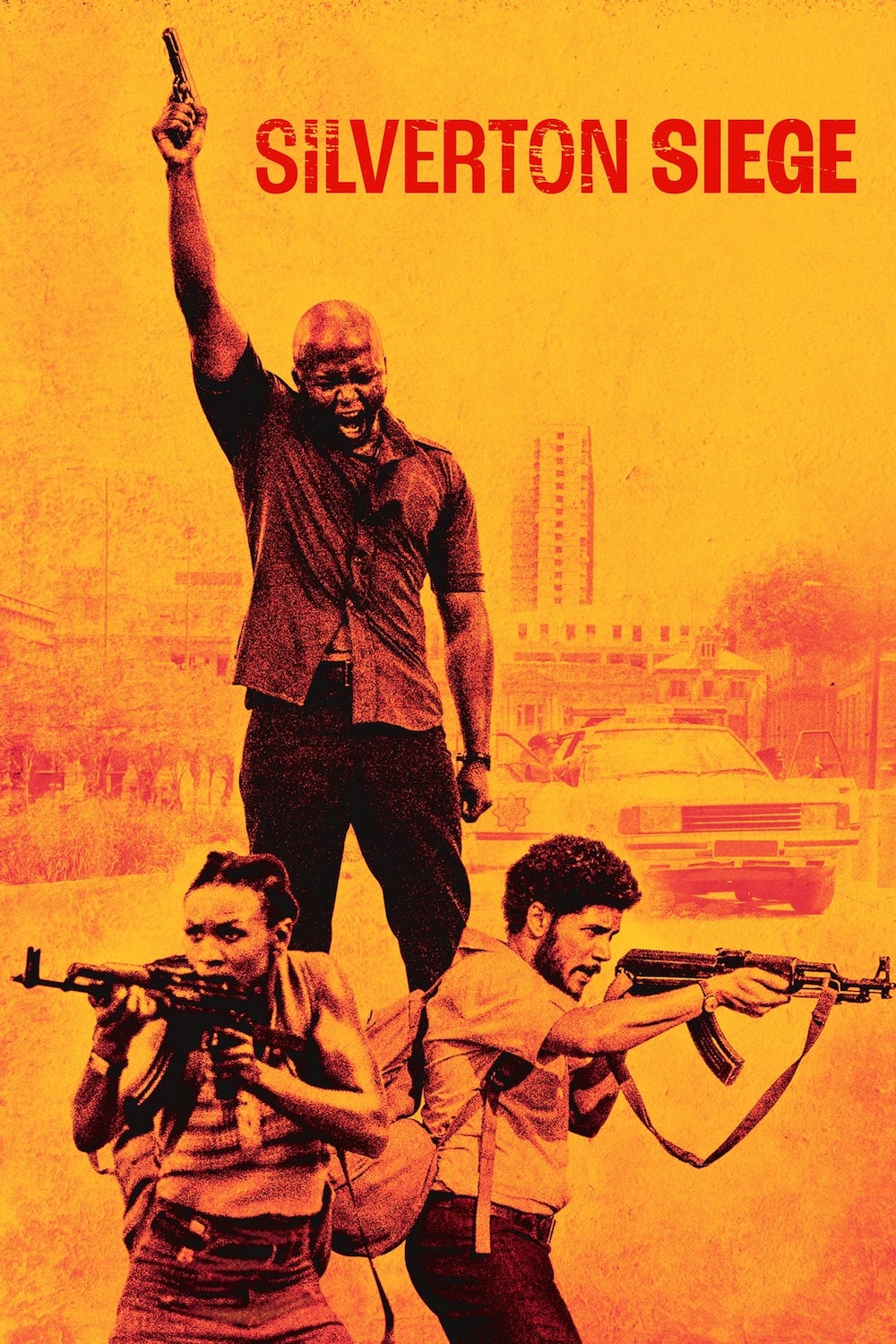
director: Mandla Dube.
writers: Sabelo Mgidi.
starring: Thabo Rametsi, Noxolo Dlamini, Stefan Erasmus, Arnold Vosloo & Michelle Mosalakae.
